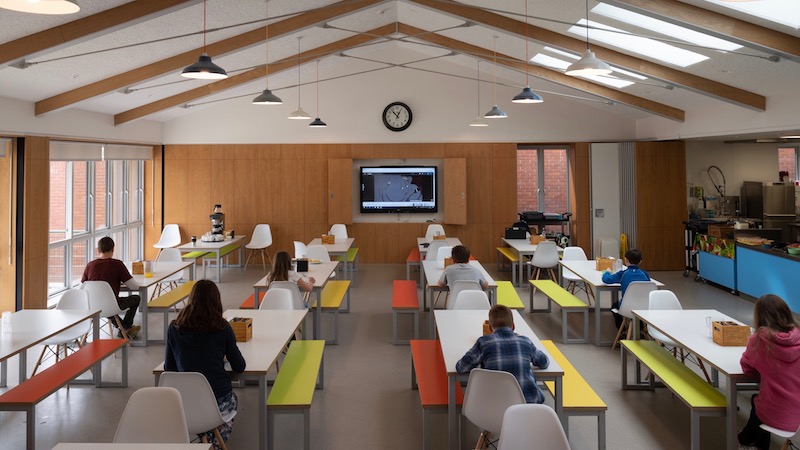It’s been a weird summer break – the weirdest part being that it effectively started in March and has been going on for over six months. COVID-19 has taken its toll in many ways, with one of the more profound instances being the upturning of the educational calendar.
If you are a foster carer with school age foster children, you’ve undoubtedly been impacted by the closure of schools and are eager to see just how the return to school will pan out over the next few weeks. At Orchard Fostering, we understand the importance of educating our young people – so we’ve taken a look at the re-opening of schools, and compiled a list of tips and tricks for helping your foster child return to education.
Re-establishing (and adapting) the routine
Readjusting to the school routine is difficult enough in a normal year. Shedding ourselves of the late nights, lazy mornings and impromptu meal times is a well-documented ritual in the first week of September. In 2020, it’s going to be even more difficult to re-establish the school routine. Your foster child’s school experience is going to change dramatically this year – and a great way to keep them grounded through the changes is by establishing a comforting routine at the top of the year.
Start gradually – try get everyone up and ready to go at their regular time every morning the week prior to school re-opening. Eat breakfast together, and then get cracking on a brain-exercising activity. If you can, try and mimic school breaks, so your foster child can be in the rhythm of the school day before they go through the doors. In the evenings, try and get your foster child to bed at their designated school night bedtime – this will help recalibrate their sleep cycle to school time.
While re-establishing the routine is all well and good, we do have to face facts – the routine is going to change. With staggered pick up and collection times in place, you will have to be prepared to pivot your routine – though, as a foster parent, pivoting is in your skillset!
Educating them about good hygiene practices
In all the hustle and bustle of returning to school, the reality of the situation can sometimes go out of focus. Students are returning to a changed landscape, that’s true – but we must not forget the reason why it has changed. COVID-19 is a dangerous illness, and it is important that, prior to returning to school, your foster child is made aware of the realities of their situation.
We’re not advocating scaring them – just setting out some ground rules to ensure their safety, and the safety of those around them. While schools will have their own virus education programmes for students in place, it would be beneficial for you to incorporate some basic hygiene protocols into your routine re-establishment time. By aligning hand-washing, mask-wearing and good hygiene etiquette with your foster child’s school routine, you are forging a connection that could potentially save lives.
Talking about their feelings
School can be a difficult place to be at the best of times – as you grow older it’s all rose-tinted memories, but in the moment things can get tough. With COVID-19 restrictions hampering a lot of the ‘fun’ aspects of school – hanging out with friends from different classes; taking part in after-school activities like drama or choir; playing sports – school might start to feel a little one-sided. Add the stress of following health protocols, and the general impact of the coronavirus pandemic on mental health, and your foster child may feel a little despondent in the coming weeks.
As such, it’s important to take the time to talk to your foster child about their feelings upon their return to school. By helping them understand the situation they’re in, you can ease the transition and alleviate the sense of missed opportunities your foster child may have.
Alleviating exam stress
Depending on your foster child’s age, they may be about to enter an exam year. Exam students – in particular Leaving Cert students – are currently experiencing considerable stress, as they try to make up for lost time.
Thankfully, the Department of Education are working their way through clearing up any worries they may have – they recently confirmed that students will have more choice on certain exams, in an effort to alleviate any lost time. As more information becomes available, your foster child’s teachers will be the people to go to for reassurance – they have the information, and will know exactly how to guide your foster child through their exam year.
As a foster parent, you can help reduce their stress by helping them place things in perspective – remembering that every student is going through the same process, just like every year.
Returning to school will be a strange experience for everyone – and things may change between now and next week. The main thing to remember is to be mindful of your foster child’s feelings throughout their new school journey – and be prepared to pivot.

